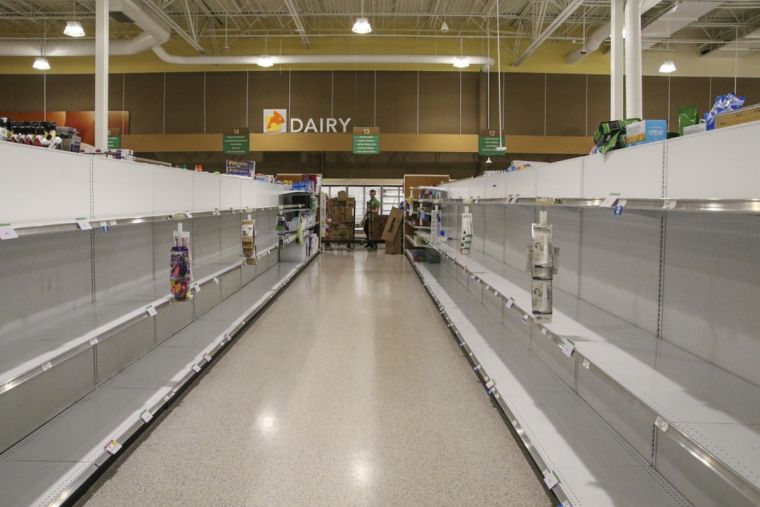Self-isolation can be a God-given opportunity, if we let it

I was fascinated to hear Esther Rantzen telling Radio 4 listeners the other day that she has been self-isolating for several weeks. She adopted this course of action much earlier than others it seems because she was acutely aware that she could be either a transmitter of the dreaded virus or succumb to its insidious effects, thereby placing an even greater burden on our over-stretched health service.
I found myself applauding her altruism and sense of civic responsibility, which stands in stark contrast to much of the behaviour we have witnessed in supermarkets throughout the country, or perhaps I should say, the world, in the light of the email I received from Texas last week asking me if we have any spare loo rolls in Wales!
Indeed, I couldn't help contrasting it with reports claiming that the Trump administration offered a German medical company "large sums of money" for exclusive access to a Covid-19 vaccine. Thankfully, whatever the truth of the reports, German health minister Jens Spahn made it clear that a takeover of the CureVac company by the Trump administration was "off the table". CureVac would only develop a vaccine "for the whole world", Spahn said, and "not for individual countries".
If these reports are true, I would suggest that the Trump administration would be guilty of an appalling abuse of power, but, having said that, its behaviour would not be all that different to the hoarding of toilet rolls, pasta and baked beans in many a British cupboard. As we all know only too well, it doesn't take too much of a crisis to expose our innate selfishness and our need of God's transforming grace.
I learned something valuable when listening to Rantzen's interview, too, because she said that Shakespeare, the great bard himself, wrote several of his best plays like King Lear and Macbeth while undergoing a similar period of self-isolation in the early 1600s. I assume she's correct but even if she is mistaken, she was making a very important point: if we are prevented from doing the things we normally do, we should start thinking creatively, and use the time we have been given in other ways, ways that reinforce our own health but also demonstrate our care for others.
The apostle Paul put it this way: when writing to his friends in Ephesus: "Use your head. Make the most of every chance you get. These are desperate times!" (The Message Translation)
Time is surely the most precious gift God has given us, and none of us know how much of it we have been allotted. Only He knows how much time we have on this earth and we do well to remember that the clock is constantly ticking.
And so, we should copy Shakespeare's example and use our time creatively. I intend to do just that. I have just been asked to write another book and so I know I will be spending some time on it. But I am just as determined to be in regular contact with others by phone, by letter and by email, both to encourage them and to check if they need any sort of help.
For I am convinced that this coronavirus pandemic is a God-given opportunity for every one of us to lay up some treasures in Heaven rather than stockpile more groceries in our cupboards or vaccines within our borders.
Rob James is a Baptist minister, writer and church and media consultant to the Evangelical Alliance Wales. He is the author of Little Thoughts About a Big God.











